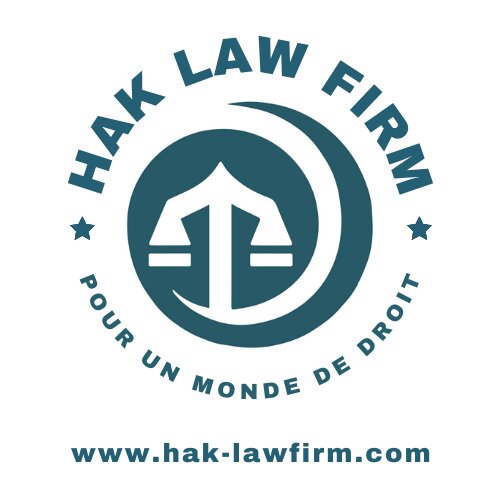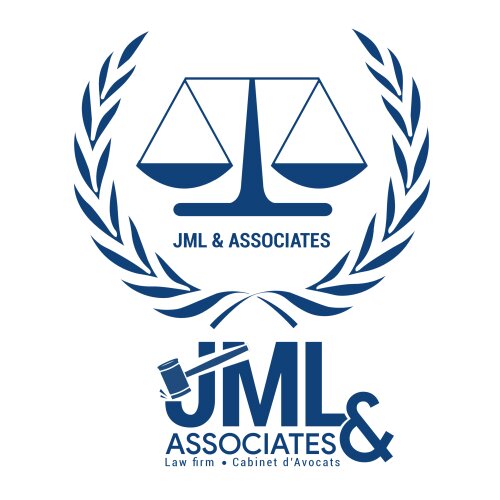Best Birth Injury Lawyers in DR Congo
Share your needs with us, get contacted by law firms.
Free. Takes 2 min.
Or refine your search by selecting a city:
List of the best lawyers in DR Congo
About Birth Injury Law in DR Congo
Birth injury refers to physical harm sustained by a newborn during the birth process. In DR Congo, birth injury law encompasses regulations and procedures related to medical malpractice, negligence, and the rights of infants and families affected by birth injuries.
Why You May Need a Lawyer
You may need a lawyer in cases where a healthcare provider's negligence or malpractice leads to a birth injury. A lawyer can help you understand your legal rights, navigate the complex legal system, and seek compensation for the physical, emotional, and financial damages caused by a birth injury.
Local Laws Overview
In DR Congo, birth injury cases are typically governed by medical malpractice laws. It's crucial to note that time limits, known as statutes of limitations, apply to filing medical malpractice claims. Additionally, obtaining expert medical testimony is usually required to prove negligence in birth injury cases.
Frequently Asked Questions
1. What are common types of birth injuries in DR Congo?
Common types of birth injuries in DR Congo include cerebral palsy, brachial plexus injuries, fractures, and brain damage.
2. How can I prove medical malpractice in a birth injury case?
To prove medical malpractice in a birth injury case, you need to demonstrate that a healthcare provider breached the standard of care, causing harm to the newborn.
3. What compensation can I seek for a birth injury in DR Congo?
Compensation for a birth injury in DR Congo may include medical expenses, future medical care costs, pain and suffering, and loss of earning capacity.
4. Can I file a birth injury claim on behalf of my child?
Yes, parents or legal guardians can file a birth injury claim on behalf of the injured child in DR Congo.
5. Is there a time limit for filing a birth injury claim?
Yes, there are statutes of limitations for filing birth injury claims in DR Congo. It's essential to consult with a lawyer to understand and comply with the deadlines.
6. How can I find a qualified birth injury lawyer in DR Congo?
You can research online, ask for referrals from trusted sources, or contact legal associations or law firms specializing in medical malpractice and birth injury cases.
7. What evidence should I gather for a birth injury case?
Evidence for a birth injury case may include medical records, expert testimony, eyewitness accounts, photographs, and any communication with healthcare providers related to the birth injury.
8. Can I seek compensation for emotional distress due to my child's birth injury?
Yes, you may be able to seek compensation for emotional distress resulting from your child's birth injury in DR Congo.
9. Can a birth injury case be settled out of court?
Yes, birth injury cases can be settled out of court through negotiation or alternative dispute resolution methods, such as mediation or arbitration.
10. What are the potential outcomes of a birth injury case in DR Congo?
The potential outcomes of a birth injury case in DR Congo may include monetary compensation, changes in healthcare practices, and accountability for healthcare providers responsible for the birth injury.
Additional Resources
For additional resources and support related to birth injury in DR Congo, you can contact the Ministry of Health, local medical associations, or nonprofit organizations specializing in birth injuries and medical malpractice.
Next Steps
If you believe your child has suffered a birth injury due to medical malpractice or negligence in DR Congo, it's crucial to seek legal advice promptly. Contact a qualified birth injury lawyer to discuss your case, understand your legal options, and take necessary steps to protect your rights and seek justice for your child.
Lawzana helps you find the best lawyers and law firms in DR Congo through a curated and pre-screened list of qualified legal professionals. Our platform offers rankings and detailed profiles of attorneys and law firms, allowing you to compare based on practice areas, including Birth Injury, experience, and client feedback.
Each profile includes a description of the firm's areas of practice, client reviews, team members and partners, year of establishment, spoken languages, office locations, contact information, social media presence, and any published articles or resources. Most firms on our platform speak English and are experienced in both local and international legal matters.
Get a quote from top-rated law firms in DR Congo — quickly, securely, and without unnecessary hassle.
Disclaimer:
The information provided on this page is for general informational purposes only and does not constitute legal advice. While we strive to ensure the accuracy and relevance of the content, legal information may change over time, and interpretations of the law can vary. You should always consult with a qualified legal professional for advice specific to your situation.
We disclaim all liability for actions taken or not taken based on the content of this page. If you believe any information is incorrect or outdated, please contact us, and we will review and update it where appropriate.
Browse birth injury law firms by city in DR Congo
Refine your search by selecting a city.










